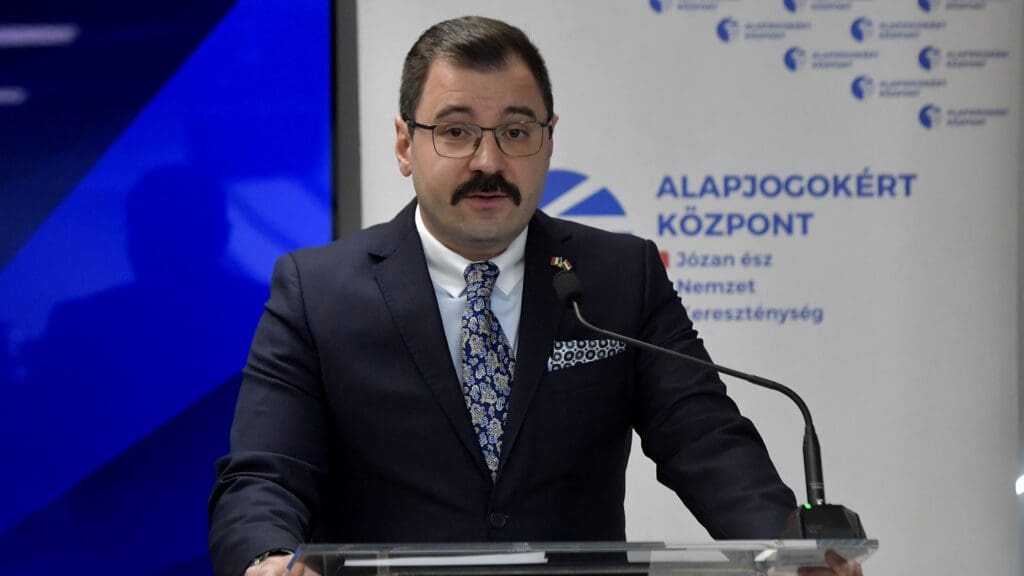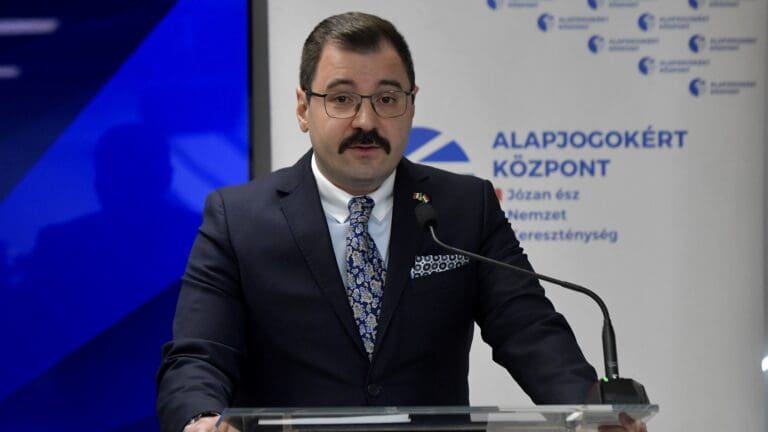The new year has just begun, but it is evident that the European Union will witness no shortage of diplomatic skirmishes in the months ahead, with one of the first examples being Warsaw’s recent adversarial move. After concluding its highly successful term at the helm of the rotating EU presidency in December, Hungary has passed the baton to Poland, which officially assumed the presidency of the Council of the European Union on 1 January. However, the opening ceremony that took place on Friday, 3 January, with representatives from most EU member states in attendance, was conducted without the Hungarian ambassador to Poland, as Polish Foreign Minister Radosław Sikorski announced in advance that he would not be welcome at the event.
Hungarian–Polish relations, which used to be the strongest within the Visegrád Four group, reached a new low following Donald Tusk’s election victory in October 2023. Consequently, this unprecedented decision comes as little surprise. Polish Deputy Minister for EU Affairs, Magdalena Sobkowiak-Czarnecka, defended the effective exclusion of Hungary’s government representative from the ceremony, by citing Budapest’s decision late last year to grant political asylum to former Polish Deputy Justice Minister Marcin Romanowski.
As reported by Hungarian Conservative, Romanowski is accused of misappropriating funds from the Justice Fund during his tenure at the Ministry of Justice under the previous Law and Justice (PiS) government. A Warsaw district court has recently issued a European arrest warrant against him. The charges include eleven alleged criminal offences, such as participating in an organized criminal group that caused damage to state property.
Romanowski has denied the allegations, describing the prosecution’s actions as unlawful and asserting that the Sejm’s (the Polish legislature) decision to waive his parliamentary immunity was invalid.
Gergely Gulyás, Chief of the Hungarian Prime Minister’s Office, who announced the granting of political asylum, criticized the state of the rule of law in Poland. He pointed out that Romanowski’s case raises concerns about the possibility of a politically motivated verdict, which Hungary cannot accept. Gulyás also emphasized specific evidence of procedural shortcomings in the case, noting that Romanowski was arrested this summer despite enjoying immunity as a member of the Parliamentary Assembly of the Council of Europe.
‘Romanowski’s case raises concerns about the possibility of a politically motivated verdict, which Hungary cannot accept’
‘He was released only after the President of the Assembly lodged a formal protest with the Polish authorities and a Polish court confirmed that the arrest was unlawful,’ Gulyás explained.
Hungarian Minister for Foreign Affairs and Trade, Péter Szijjártó, described Warsaw’s unprecedented decision as ‘childish and pathetic’.
Balázs Orbán, the political director to the Hungarian prime minister, also responded in a post on X. He wrote: ‘If admitting political refugees and standing on the side of justice means being excluded from a few opening ceremonies, it is well worth the price.’
Balázs Orbán on X (formerly Twitter): "🇭🇺Back in December, Hungary granted political asylum to Poland's former Deputy Justice Minister. Marcin Romanowski was arrested by Polish authorities despite his parliamentary immunity - making his ability to receive a fair trial, at the very least, questionable. After the cases... / X"
🇭🇺Back in December, Hungary granted political asylum to Poland's former Deputy Justice Minister. Marcin Romanowski was arrested by Polish authorities despite his parliamentary immunity - making his ability to receive a fair trial, at the very least, questionable. After the cases...
According to the latest reports, Poland intends to take the matter to the Court of Justice of the European Union (CJEU), as revealed by Deputy Foreign Minister Andrzej Szejna in an interview. He argued that ‘Hungary has clearly violated the principle of sincere cooperation’ enshrined in the Treaty on the European Union, which obliges member states to ensure compliance with European law ‘in full mutual respect’ for one another.
Szejna stated that Poland would invoke Article 259 of the Treaty on the Functioning of the European Union, which allows a member state to bring another before the CJEU if it believes the latter has failed to fulfil its obligations.
Meanwhile, Romanowski issued a set of five conditions under which he would be willing to return to Poland and face justice. All of these conditions demand that the government reverse changes it has made to Poland’s justice system since taking office.
Related articles:








